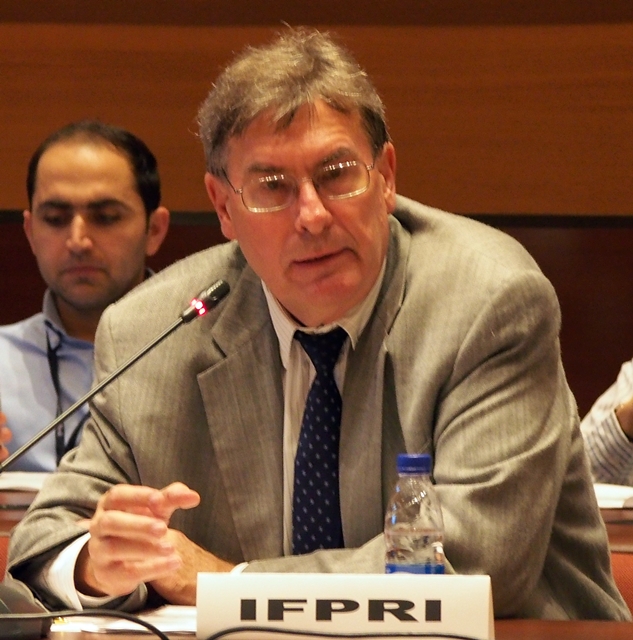We are faced with the immense challenge of an extra 2 billion people to feed in the next 30 years, changes to climate across the globe potentially reducing crop yields by up to 25 percent and a rapid and continuing degradation of agricultural land and forests.
In this context, the Asian Development Bank is initiating a broad partnership in Asia to share knowledge, skills and best practices to increase the supply of nutritious food while also protecting natural resources. The Bank has called on the combined knowledge of CGIAR agricultural research centers, including the World Agroforestry Centre (ICRAF), as the key research group to bring high-level technologies and experience with smallholders to the forefront in the establishment of the regional coalition. The move comes as the centers themselves are moving towards greater integration and collaboration to maximize and speed their research results and ensure wide-scale implementation for the benefit of some of the world’s poorest farmers who, nonetheless, produce the majority of the food consumed by the more than 1.5 billion people who live in Asia.
Prior to the Bank’s Food Security Forum: Safe, Nutritious and Affordable Food for All, held June 22-24 in Manila, representatives of most of the CGIAR centers working in Asia met at the campus of the International Rice Research Institute outside of Manila at Los Baños.
Matthew Morrell, director-general of the Institute, emphasized to the meeting of CGIAR senior researchers that now was a critical time for coordinating research to ensure maximum effectiveness and that this imperative was in line with the direction of CGIAR given by the donor nations who support it through their contributions to the CGIAR Fund. It was also in line with the world’s nations’ ambitions to achieve the United Nations Sustainable Development Goals, the Paris Agreement on Climate Change and other international conventions that aim to secure a sustainable future for all. The center representatives endorsed Morrell’s call and agreed to develop an integrated framework that linked to national and regional development priorities to better ensure implementation across the region.
Later, the centers, along with representatives of donor nations, including Australia, Germany, and the United States, international bodies like the UN Food and Agriculture Organization and World Food Programme, regional groups such as the Asian Farmers Association for Sustainable Rural Development, businesses such as Synergy, and national governments such as Indonesia, Kyrgyzstan, Lao PDR, Myanmar, and the People’s Republic of China—spoke of the challenges and what they were already doing to meet them in the opening session of the Food Security Forum at the Bank’s headquarters in central Manila.
IFPRI’s Mark Rosegrant pointed to a key obstacle to rapid action on food security: “One of the areas that have too little attention, particularly, in developing countries is the regulatory systems that are designed to govern science, technology and innovation in agriculture. The situation is not good and in many ways is going backward.”
Other CGIAR representatives echoed his concern, citing examples from their own research areas, such as the free movement of genetic material between centers in different countries being restricted by a web of regulations.
The other major obstacle was the weak link between research centers and development agencies that can take research results and include them in landscape-wide programs that build the capacity of smallholders to understand and implement the technologies, whether high or low, and improve their ability to then ensure their products reach domestic and international markets.
However, there had also been extensive progress in developing new crop varieties that were more resistant to climate change and natural disasters, employing high-level technology such as satellite data analysis and working with smallholders to create integrated farming systems, such as those developed through participatory action research by ICRAF throughout Asia.
Ingrid Öborn, ICRAF’s regional coordinator for Southeast Asia, said, “These obstacles—and the many others we face to ensure a safe and nutritious food supply—will be overcome most effectively through the CGIAR centers working together in partnership with national governments and regional bodies such as the Association of Southeast Asian Nations and through close collaboration with the national and international agencies who implement in the field. It is extremely timely that the Asian Development Bank and the CGIAR donor nations have taken the initiative when funding for agricultural research is seeing a decline. Now is the time to invest in research in development, not back away. The risk of seeing again widespread famine, increasing malnutrition and continuing depletion of our natural resources needs to be mitigated through the kind of collaborations that the Bank and CGIAR donor nations have called for.”
Achieving the global goals on food security can be done but requires synergy among the priorities and commitments of governments, the private sector, civil society, and development partners. It is in this context that the Bank’s Rural Development and Food Security Thematic Group initiated the Food Security Forum, which is an important beginning to supporting and coordinating research and development in Asia.







